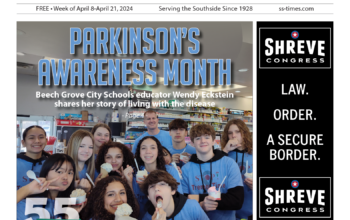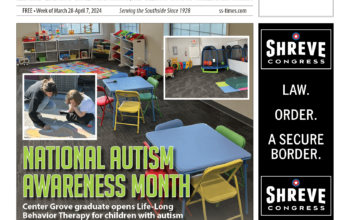By Curtis Honeycutt
I have a 5-year-old son. Right now toilet humor is big. Body parts are funny. Things that produce bad smells get big laughs. Basically, I’m in my comedic sweet spot when I’m with the pre-K crowd. Apparently, I act my shoe size more than I act my age. I’m OK with that.
Guess what, fellow word nerds? According to a 2017 Springer study that surveyed 821 participants, English speakers, as a whole, aren’t any more mature than I am. The study asked participants to rate 211 words on a scale of 1 to 5, where 1 is not funny at all and 5 is downright hilarious. In total, the participants ranked nearly 5,000 words.
Let me cut to the chase and give you the top 10 funniest words in the English language in order of hilarity: booty, tit, booby, hooter, nitwit, twit, waddle, tinkle, bebop and egghead. I can safely guarantee this collection of words will never appear together in the same sentence again, although — if they did — they’d get tons of guffaws and chortles, based on the data.
Before you dismiss this list of funniest words, just know that 58 percent of respondents were women. The average age of participants was 35. Seventy percent of people who participated in the study had at least completed an undergraduate degree. So that means we can definitively say “booty” is a word people can’t help but find funny. My 5-year-old and I would certainly agree.
Whether you’re an egghead or a nitwit, isn’t it comforting to know we giggle at the same things? Republicans and Democrats both snicker when someone says “tinkle.” Black people and white people both think “waddle” is silly. Our collective immaturity gives me hope that we are more alike than we are different.
Comedic words won’t necessarily fix our disagreements, but I do think they can help. So the next time you find yourself in a frustrating ideological argument with a Twitter troll or your crazy drunk uncle, I recommend casually dropping in a few of these words into your conversation. Just don’t accuse the other person of resembling one of these words; if you do, you might end up on the receiving end of a swift kick to the keister.
— Curtis Honeycutt is a nationally award-winning syndicated humor writer. Connect with him on Twitter (@curtishoneycutt) or at curtishoneycutt.com.

